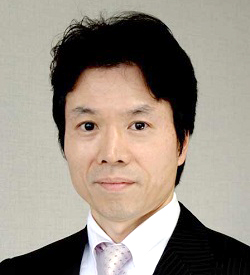Distinguished Achievement and Contributions Award

Dr. Naonori Ueda graduated from the Department of Communication Engineering, School of Engineering, Osaka University in 1982, and completed a master's course in Communication Engineering at the same university's graduate school in 1984. He joined the Nippon Telegraph and Telephone Public Corporation (currently NTT) YOKOSUKA Electrical Communication Laboratory in April of the same year. He received his doctorate from Osaka University in 1992 and was a visiting researcher at Purdue University (USA) from 1994 to 1995. Since 1998, he has served as leader of the Emergent Learning Research Group, Executive Manager of the Intelligent Communication Laboratory, Executive Manager of the Innovative Communication Laboratory, and Vice President, Head of the Communication Science Research Laboratories at NTT Communication Science Laboratories, where he currently belongs. Since 2016, he has been active as Director of the Ueda Research Laboratory at the Communication Science Laboratories and as an NTT Fellow. As for educational activities, he became a visiting associate professor at the Nara Institute of Science and Technology in 1999, a visiting professor at the same institute in 2004, a visiting professor at the National Institute of Informatics in 2010, a collaborative professor at Kyoto University in 2010, a visiting professor at Kobe University in 2018, and a special guest professor at Meiji University in 2020, and he has contributed significantly to the guidance of students.
Over many years, he has made important and pioneering achievements in basic research on machine learning, the core technology of artificial intelligence systems. He has made significant contributions to the academic development and application of this field. At that time, when complex models are used for complex and diverse data, it is difficult to find a globally optimal solution because of convergence to a local optimum. In the case of a small amount of training data, there is a problem of over-fitting, which deteriorates predictive performance (generalization performance) for unknown data. He devised a new method based on statistical physics and variational Bayesian theory to solve this problem. Furthermore, while machine learning technology for unstructured data such as text data on the Web is still unsolved, he formulated the world's first multiple classification problem, in which a single document consists of multiple classes, and devised the world's first multiplex topic text model. He has made many pioneering and original achievements and has greatly influenced subsequent research.
Concerning the development of applications for machine learning, in the Cabinet Office's Funding Program for World-Leading Innovative R&D on Science and Technology (FIRST), for which he served as a sub-leader, he developed an automatic technique for recognizing approximately nine million actual nursing activities from acceleration sensor data. The results were highly evaluated as realizing the world's first medical big data analysis. In addition, as a representative of the NTT Machine Learning and Data Science Center, he launched a project called the “spatio-temporal multidimensional collective data analysis research” and developed a spatio-temporal prediction method applicable to non-stationary data and real-time proactive people flow navigation technology. In joint research with the University of Tokyo, he devised a technology for automatically detecting and classifying supernovae from images captured by the Subaru Telescope of the National Astronomical Observatory of Japan. This technology has been put into practical use and has contributed to detecting many supernovae. Furthermore, he was appointed as the Deputy Director of the RIKEN Center for Advanced Intelligence Project (concurrently) in 2016 and has led the development of AI technology for disaster prevention/mitigation, medical care, earthquakes/weather, and he has produced many significant results such as tsunami flood damage prediction technology.
For his achievements to date, he has received numerous academic awards, including the IEICE Fellow, the IEICE Achievement Award, and Commendation by the Minister of Education, Culture, Sports, Science and Technology. In addition, he has served as an affiliated member of the Science Council of Japan, a member of the Science Committee for Information Science of the Ministry of Education, Culture, Sports, Science and Technology, a PRISM program director of the Cabinet Office, a JST CREST research supervisor, and a deputy director of the JST Moonshot Research and Development Program, and he has been continuing to lead artificial intelligence research in Japan.
As described above, Dr. Ueda's contributions to electronic information and communication are remarkable. We are confident that Dr. Ueda is a worthy recipient of the IEICE Distinguished Achievement and Contributions Award.